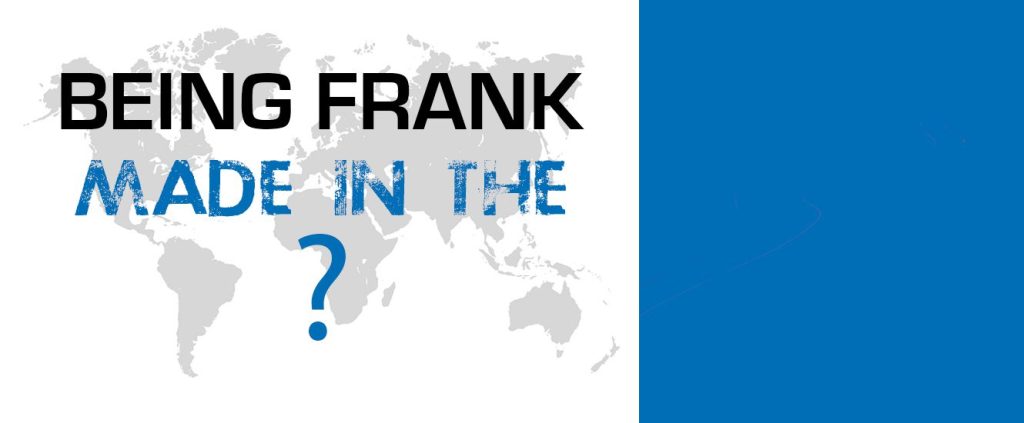PayPal now available at checkout
Free US Shipping On Orders $99+
Extended Support Hours! Tuesday to Thursday: 10 am - 7 pm
Previous slide
Next slide


The question of where a product is made is more important to some than others and seems to be less important to many than it was in the past. Certainly the world feels smaller these days with the ability to see, hear, and learn about anything with a digital device. Case in point, in the mid-nineties I was traveling with a co-worker to visit potential suppliers in mainland China. While born and raised in Southern California, his Swedish ancestry was evident in his height (6’ 3” or so), fair skin, and blonde hair. Within minutes of entering this one factory nearly all the machines came to a halt and the rumble of mass production was replaced with a deafening silence. We saw dozens of workers scurrying to our perimeter where they were giggling and pointing at – no, not at us, but my co-worker. Our guide explained that the workers had never seen blonde hair! It seems hard to imagine such a scene these days. Foreign things are not as foreign as they once were.
It is increasingly rare for any product to be fully made in one place or by one entity. First, there is the question of what “made” means in this context. Does “made” include where the raw material was produced, where the processing of the raw material was done, the place where the subassemblies were completed, and where final assembly was finished? Because short of a belt and buckle made from locally sourced goatskin and brass, the belt tailored in a shop in Asheville, NC is not completely made in Asheville, NC. Second, does “made” include where the design and engineering originated? Is a car designed and engineered in Japan but assembled in the United States, not a Japanese car? If yes, how does one reconcile that with the concept of Intellectual Property? Finally, the concept of geographical Competitive Advantage continues to become less and less relevant. Is France the only place for great red wine (Napa Valley would disagree), Italy the only source for fine sports cars (Germany would have something to say about that), or Switzerland the only home of precision watches (Japan would dissent)? I can only raise enough doubt to conclude that there is no simple answer to where a product is made.
I admit that the romantic notion of authenticity or uniqueness related to the perceived country of origin resonates with me. I like my Swiss watch, German car, and American jeans. But I recognize this is a more subjective than objective response. That is fine, and everyone has a right to value products however they want. One cannot disconnect the economic realities either, as Honda employs 15,000 workers in Marysville, Ohio, and Apple pays top wages in Silicon Valley as a result of revenues derived from millions of phones made in China. Another reality is that the strength and history of a brand can transcend borders. And lastly, there are nationalistic and political factors as misguided as they often times are.
When we have to make decisions on what we do here at Cane Creek, we distill it down to: “Where do we add real value?” Almost always it is in product development. A product is a Cane Creek product because we conceived, designed, engineered, and tested it to surpass our standards – the most important of which is that we want to ride the hell out of it. We machine many aluminum prototypes in house because it can lead us to a better final design. Forks and shocks are assembled and 100% tested in our building because we believe the feel of how good suspension performs requires empathy during assembly as well as dyno graphs. If a vendor can do a better job assembling than we can or if they have capabilities that we do not possess, then we don’t limit the product’s potential just to say it was made here. After all, what does made-in really mean?
Monday: 10:00 am – 5:00 pm
Tuesday – Thursday: 10:00 am – 7:00 pm
Friday: 10:00 am – 5:00 pm
Saturday – Sunday: Closed